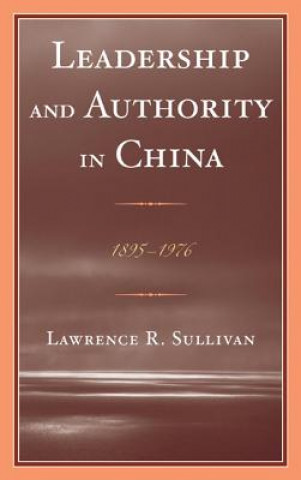
Kód: 04670014
Leadership and Authority in China
Autor Lawrence Sullivan
This volume presents elite conflicts and political controversies in China from 1895 to 1978 as rooted in two diametrically opposed visions of leadership and political authority: a radical, charismatic model that instills absolute ... celý popis
- Jazyk:
 Angličtina
Angličtina - Vazba: Brožovaná
- Počet stran: 334
Nakladatelství: Lexington Books, 2014
- Více informací o knize

Mohlo by se vám také líbit
Darujte tuto knihu ještě dnes
- Objednejte knihu a zvolte Zaslat jako dárek.
- Obratem obdržíte darovací poukaz na knihu, který můžete ihned předat obdarovanému.
- Knihu zašleme na adresu obdarovaného, o nic se nestaráte.
Více informací o knize Leadership and Authority in China
Nákupem získáte 212 bodů
 Anotace knihy
Anotace knihy
This volume presents elite conflicts and political controversies in China from 1895 to 1978 as rooted in two diametrically opposed visions of leadership and political authority: a radical, charismatic model that instills absolute authority in the single leader whose "will" guides the polity and whose "word" is the basis of policy formulation, versus an institutional model in which authority inheres in organization and where "collective" leadership and decision-making govern the political realm. The former model in modern Chinese history entailed a "leader principle" and personality cult that began with Sun Yatsen and Chiang Kaishek in the Nationalist Party (KMT) and reached its peak with the leadership cult of Chinese Communist Party (CCP) Chairman Mao Zedong, especially during the 1966-1976 Great Proletarian Cultural Revolution. The latter model with its emphasis on "collective leadership" (jiti lingdao) and "administrative rationalism" began as a reaction among early members of the CCP against the promotion of the Sun and Chiang leadership cults and became a central governing principle in the Communist Party that served as official leadership doctrine beginning with the formation of the Party in 1921. While tensions over leadership issues were relatively muted in the pre-1949 period and early 1950s of CCP history as an apparent "compromise" was reached in which from 1943 onward a cult of the leader was promoted for propaganda purposes but with collegial decision-making governing inner Party decision-making, the mid-to-late 1950s saw this "compromise" among the top leadership come under increasing strain and finally break down. Devoted to a fundamentally different vision of a "socialist" China from other top leaders on a number of economic, social, and political fronts, Mao Zedong pushed his domination of the policy process that ultimately provoked a wholesale assault on the CCP apparatus throughout the country while the leader cult reached mythic proportions during the Cultural Revolution. Confronted by the possibility of civil war and generally opposed to the takeover of the polity by the radical Gang of Four led by his wife Jiang Qing, by the mid-1970s the aging great leader acquiesced to the rebuilding of the CCP along traditional, "institutional" lines.
 Parametry knihy
Parametry knihy
Zařazení knihy Knihy v angličtině Society & social sciences Politics & government Political structure & processes
2117 Kč
- Plný název: Leadership and Authority in China
- Podnázev: 1895-1978
- Autor: Lawrence Sullivan
- Jazyk:
 Angličtina
Angličtina - Vazba: Brožovaná
- Počet stran: 334
- EAN: 9780739198032
- ISBN: 0739198033
- ID: 04670014
- Nakladatelství: Lexington Books
- Hmotnost: 476 g
- Rozměry: 227 × 153 × 24 mm
- Datum vydání: 17. July 2014
Oblíbené z jiného soudku
-
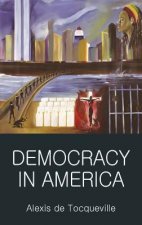
Democracy in America
139 Kč -
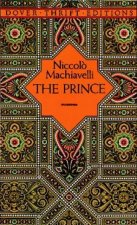
The Prince
90 Kč -

CONVERSATIONS WITH MYSELF
511 Kč -
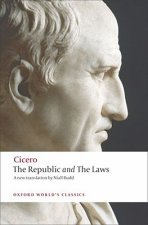
Republic and The Laws
223 Kč -

Stalin
526 Kč -

Anarchy, State, and Utopia
503 Kč -
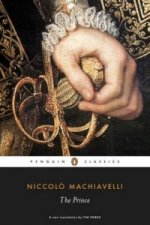
Prince
223 Kč -

The Prince
79 Kč -

Weapons of Math Destruction
323 Kč -
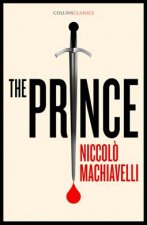
Prince
223 Kč -
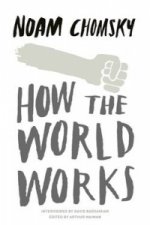
How the World Works
464 Kč -

Prince
357 Kč -

JFK and the Unspeakable
410 Kč -

The Road to Unfreedom
249 Kč -

Red Notice: How I Become Putins No 1 Enemy
323 Kč -

Twilight of Democracy
303 Kč -

From Dictatorship to Democracy
223 Kč -
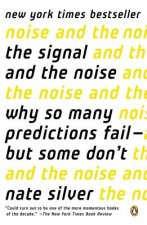
Signal and the Noise
393 Kč -

Audacity of Hope
303 Kč -
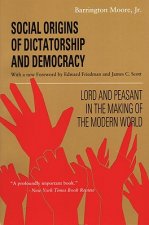
Social Origins of Dictatorship and Democracy
714 Kč -

State in the Third Millennium
1130 Kč -

How to Stand Up to a Dictator
303 Kč -
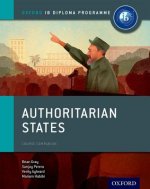
Oxford IB Diploma Programme: Authoritarian States Course Companion
1239 Kč -
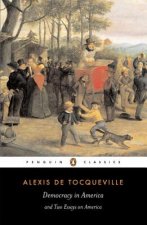
Democracy in America
340 Kč -

Prince
196 Kč -

Theory U: Leading from the Future as It Emerges
1046 Kč -
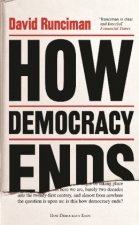
How Democracy Ends
290 Kč -

World As It Is
303 Kč -

Democracy Incorporated
597 Kč -

Red State, Blue State, Rich State, Poor State
611 Kč -
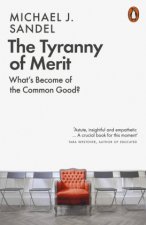
Tyranny of Merit
303 Kč -

Utopia
130 Kč -
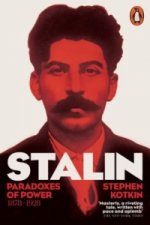
Stalin, Vol. I
542 Kč -

Concise Oxford Dictionary of Politics and International Relations
384 Kč -

Future of Freedom
425 Kč -
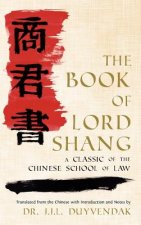
Book of Lord Shang
1001 Kč -
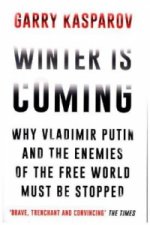
Winter Is Coming
323 Kč -
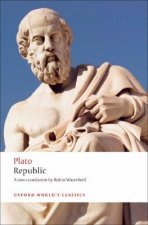
Republic
223 Kč -

Orban
512 Kč -

Likewar: The Weaponization of Social Media
382 Kč -

Obama: An Intimate Portrait
1111 Kč -

Prince
343 Kč -
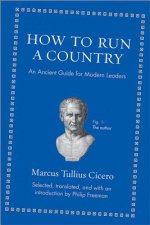
How to Run a Country
365 Kč -

Road to Somewhere
276 Kč -

Hitler
542 Kč -
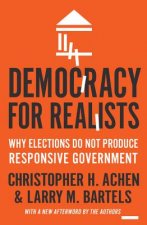
Democracy for Realists
500 Kč -

Mrs. Kennedy and Me
390 Kč -

Oxford Handbook of Comparative Constitutional Law
1565 Kč -
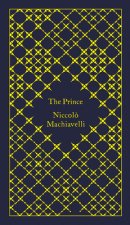
Prince
433 Kč
Osobní odběr Praha, Brno a 12903 dalších
Copyright ©2008-24 nejlevnejsi-knihy.cz Všechna práva vyhrazenaSoukromíCookies







 Vrácení do měsíce
Vrácení do měsíce 571 999 099 (8-15.30h)
571 999 099 (8-15.30h)